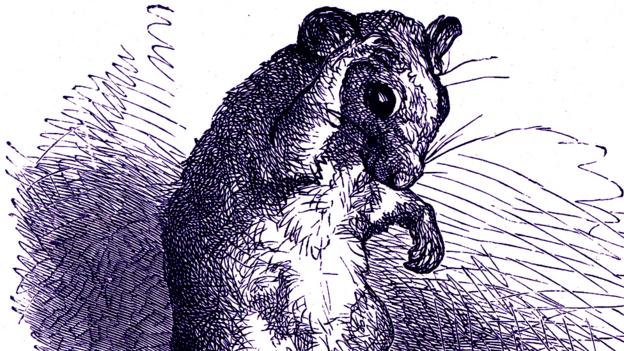There are approximately 20,000 living alumni, of which about 60% make a gift to Amherst each year—one of the highest alumni participation rates of any college in the country.[66]
https://archive.org/stream/theconsecratedem00king/theconsecratedem00king_djvu.txt
https://archive.org/stream/theconsecratedem00king/theconsecratedem00king_djvu.txt
"THE CONSECRATED EMINENCE" :The Story of the Campus and Buildings of Amherst College By STANLEY KING, I951 這是麻州名校 AMHERST COLLEGE 一百多年的學校建築物及人物的故事。我最驚訝的卻是: 它引 Ecclesiasticus Chapter 38 德訓篇38的, 跟現在讀"思高聖經本"的內容和感覺,差別很大----它贊揚那些蓋校舍的匠人...... 多"正面思考"而非一味推崇經師.....
CONTENTS Preface Foreword Chapter I II III IV V VI VII VIII INTRODUCTION i THE FOUNDERS BUILD A COLLEGE 6 ARCHITECTURE "YANKEE ORDER" 32 "CHRISTIAN AESTHETICS" 52 "OLD DOC" AND THE PRATTS 84 THE AGE OF PLIMPTON 115 THE ALUMNI TAKE THE INITIATIVE 146 BUILDING FOR THE SECOND CENTURY 164 IX MORE LAND 194 X BUILDING DURING DEPRESSION 208 XI FLOOD AND HURRICANE 238 XII THE PLANT IN WORLD WAR II 256 XIII POSTWAR BUILDING 280 XIV THE PRESIDENT'S HOUSE (by Margaret Pinckney King) 288 XV CONCLUSION 297 Notes on Source Material 306 Acknowledgments 309 Appendix i Summary of Buildings (chronological order) 310 2 College Residences (by streets) 328 3 College Residences (chronological order) 330 4 Acquisition of Property (chronological order) 332 5 Summary of Fraternity Houses 337 [vii] 6 Members of Buildings and Grounds Committee 340 7 Index of Building Costs (graph) 346 8 Map of Buildings (with buildings since 1924 indicated by heavy line) 347 9 Key to Map of College Property 348 Map of College Property 10 Buildings in Each Period by Cubic Feet 353 1 1 Disposition of Centennial Gift 354 Index 359
Ecclesiasticus Chapter 38 | Next >> |
Viewing the Standard King James Version (Pure Cambridge). Click to switch to 1611 King James Version of Ecclesiasticus Chapter 38
1Honour a physician with the honour due unto him for the uses which ye may have of him: for the Lord hath created him.
34 But they will maintain the state of the world, and all their desire is in the work of their craft.
思高德訓篇
第三十八章
論醫藥
- 應尊敬醫生,因為他是非有不可的,也是上主造的。
- 治療原是來自至高者;君王對醫生也應送禮。
- 醫生的學識使他抬頭,在偉人面前,備受讚揚。
- 上主使大地生長藥材,明智人決不輕視它們。
- 天主不是用一根木頭,使苦水變甜,
- 為彰顯自己的大能麼﹖至高者賜給人學識,是為叫人稱讚他的奇工妙化。
- 醫生用藥材治病,減少人的痛苦;藥劑師用藥材配製香甜的合劑,和治療疾病的膏藥。他的工作沒有止境,
- 直到醫好了世上的人。 求醫與求主
- 我兒,你患病時,不要失望,但要祈求上主,他要賜你病愈。
- 你應遠離過犯,管治你的手,洗淨你心中的一切罪惡;
- 你應奉獻馨香和上等麵粉的記念祭品,照你能備辦的,應奉獻肥美的祭品。
- 但是也要請醫生來診治,因為他是上主造的,不要讓他離開你,因為你需要他。
- 有時他們妙手回春;
- 故此他們也應該祈求上主,為使他們能給人安樂與健康,藉此維持自己的生活。
- 凡在造他的上主跟前犯罪的人,終會落在醫生手裏。 居喪與節哀
- 我兒,對死者,你應流淚痛哭,有如受重苦的人開始痛哭;又要按死者的身分,安葬他的遺體,不可輕忽對他的喪儀。
- 你要悲泣慟哭,且按死者的身分,舉行喪儀。
- 為避免人的非難,你要按死者的身份,追悼一天或兩天,以後便要節哀;
- 因為悲傷令人早死,且衰敗人的體力,心中的憂苦,使人精神頹唐。
- 出殯以後,不要再哀痛,悲傷的生活,是難以忍受的。
- 不要任憑你的心憂悶;要驅散憂悶,記得你的結局。
- 不要忘記:死者不能再回來;你這樣悲傷,為他沒有好處,對你自己有害。
- 死人好像對你說:「你當記得我的命運,因為你的命運,將來也是如此:昨天是我,今天是你。」
- 死者既已長眠,憂苦的懷念即應停止;他既然斷了氣,你便該因他而感到安慰。 勞動與求智
- 經師的智慧,是從優閒中得來的;事務不繁忙的人,方能成為明智的人。
- 那執犁,自誇善用刺棒趕牛耕作,終日勞碌,言談不離牛犢的,怎能成為明智的人﹖
- 他專心於耕田的事,熬夜喂養母牛。
- 同樣,工匠和工程師,度夜如日;彫刻匠鐫刻圖樣,常設法改變花樣,專心致志,力求酷肖,熬夜趕完自己的工作。
- 同樣,鐵匠坐在鐵砧近旁,思量怎能把生鐵打好;火星噴射在他身上,與灼熱的爐火決鬥,
- 鎚聲震動他的耳鼓,他的眼注視著器具模型;
- 他專心的完成工作,完成後,又熬夜加以修飾。
- 同樣,陶工坐在自己作業的旁邊,用腳轉動機輪,心中常掛念自己的工作,他的工作全是有定數的;
- 他用自己的手臂,製成陶泥,用腳把泥踹軟;
- 專心去完成塗抹釉彩,熬夜清除爐灶。這些人怎能獲得智慧﹖
- 這些人,他們的希望全靠自己的一雙手,各人對於自己的手藝,都很精通。
- 若是沒有這等人,便不會建造城池;
- 人也沒有房屋住,沒有道路可行。但是,在民眾的會議中,卻沒有人推薦他們,在集會中也不是上流人物。
- 他們決坐不上審判官的席位,他們不懂得進行審判的程序;不會講解律例和正義,更不會發明格言。
- 他們堅持的,只在於製造世上的器具;他們祈求的,只在於技藝的工作。但是,那將自己的精神,專注於敬畏至高者,專注於認識生命的法律的人,就迥然不同。




